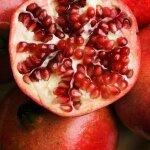
National Nutrition Month began as a one-week event in 1973, but as awareness of the subject grew, it became a month-long event in 1980. This year, the theme is “Bite into a Healthy Lifestyle.”
And speaking of healthy, do you ever wonder how people survived without fast food restaurants? Well, me neither. I get along just fine without them. In fact, I’m betting that avoiding fast food and paying attention to what you eat and how much of it you eat means aging more gracefully and skipping over the need for both excessive and serious medical attention---one kind of attention I don’t particularly enjoy.
In 400 B.C. when Hippocrates said, “Let thy food be thy medicine and thy medicine be thy food,” he proved that even then food could either be construed as poison or elixir, nourishment or sheer entertainment.
I’m thinking March is a great time to spend a little more time meal-planning and shopping well with the mission of eating a more varied diet. It’s easy to slip into a rut where you make the same five things every week and eat leftovers two days a week. I’ve been guilty of that. But it could be worse. I’m vowing not to eat anything that comes in a package and only requires heating, and instead have a little more fun in the kitchen (yes, there are ways to make it more fun, like listening to good music while you’re cooking). My goal will be to bring more whole foods like eggs, fruit, vegetables, whole grains and beans to the table.
I wonder how our culture survives at all considering how many people eat poorly as a matter of routine. Others think eating fast food, even once in a while, is a good idea. They say eat everything in moderation. But do they really mean everything? Even those things that can truly be called “things” (even though they are presumably edible) because they contain enough preservatives to keep them intact for weeks? Think of how long they take up space in your digestive tract.
If you think about it, pre-fast food generations had fewer choices. Now, we have terrible temptations at every juncture. We long for the “party in your mouth” even if doesn’t necessarily provide sustenance, energy or nutrients. We block out the presence of cancer-causing agents, pesticides, the sugar and high fructose corn syrup that causes candida and all the issues associated with it, as well as sodium, which is often responsible for high blood pressure. Of course, these are just a few offenders of the unhealthy diet.
Marjorie Nolan Cohn is a registered dietician, nutritionist and spokesperson for the Academy of Nutrition and Dietetics in Ohio, which acknowledges the need for eating fresh produce. But it’s a more personal approach that makes the difference. For instance, a diabetic can’t eat as much fruit as someone without diabetes because of the amount of natural sugar, which raises the blood-sugar level just the same as refined sugar. “…it’s also essential to make informed food choices based on your individual health and nutrient needs,” says Cohn. “Knowing which nutrients your body needs, the foods that contain them, and how much fits into your healthy eating plan are all part of making smart choices.”
In addition to understanding our own systems and knowing what our particular issues are, we also must strive for balance. Too much of a good thing is, well, bad---perhaps as bad as too much of an inherently bad thing. You can’t live on one thing and expect your body to function well. Deficiencies in things like Omega-3 Fatty Acids (found in fish, flaxseeds and walnuts), magnesium (found in seaweed, greens and beans), Vitamin B-6 (poultry, seafood, bananas and leafy greens) and B-12 (meat, fish, poultry, eggs, milk and shellfish) can all cause physical problems as well as depression and anxiety, among other things.
Perhaps March is not only a good time to start avoiding fast food. Maybe it’s also the month to find out what your body may be lacking. Imagine how empowering it would be to control how you feel by eating certain foods instead of others! Celebrating National Nutrition Month could inspire a whole new you.
Title: Meta Description: Meta keywords: depression, anxiety
























































